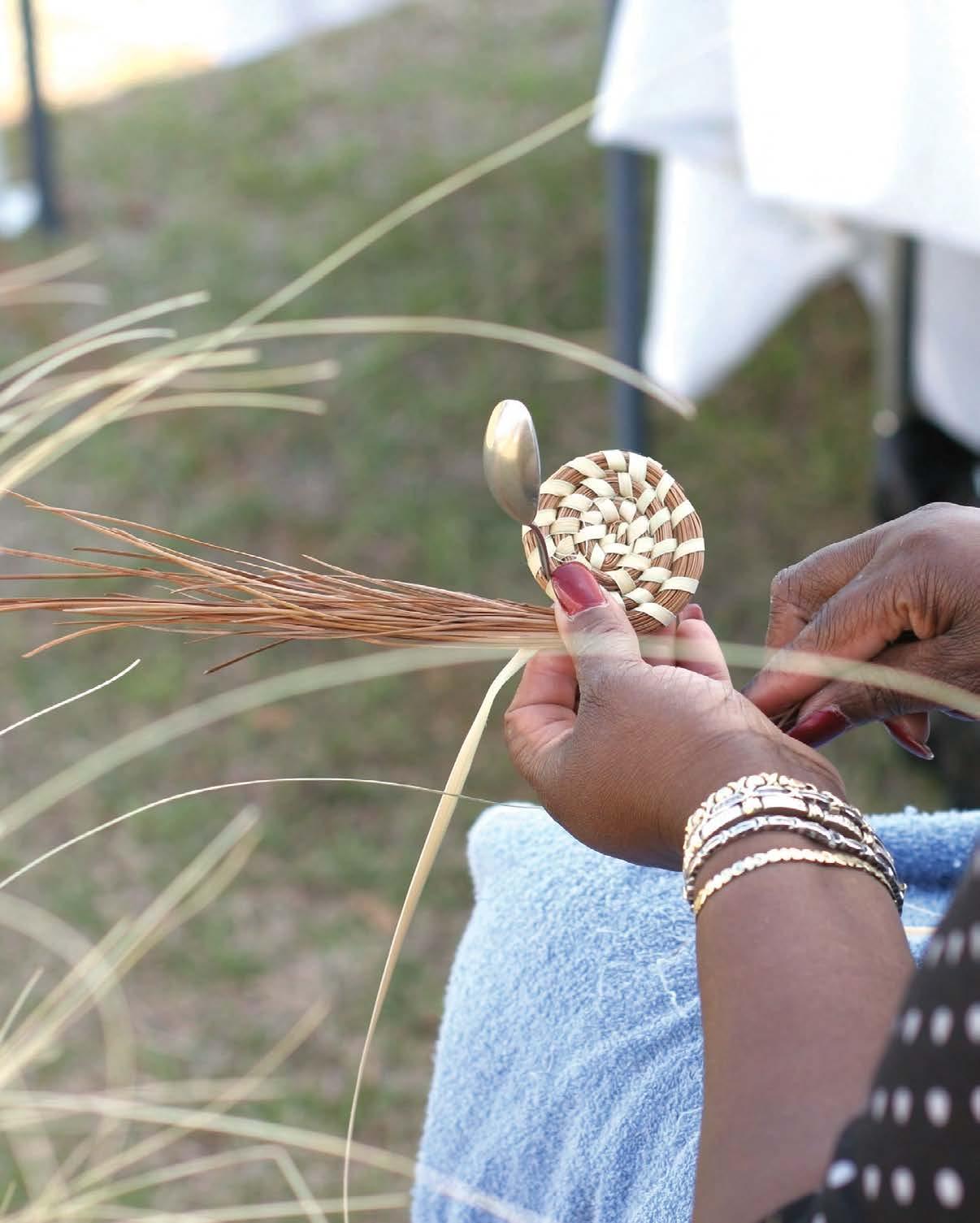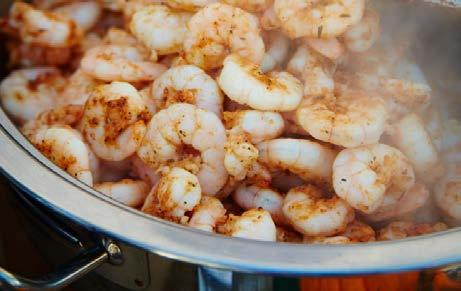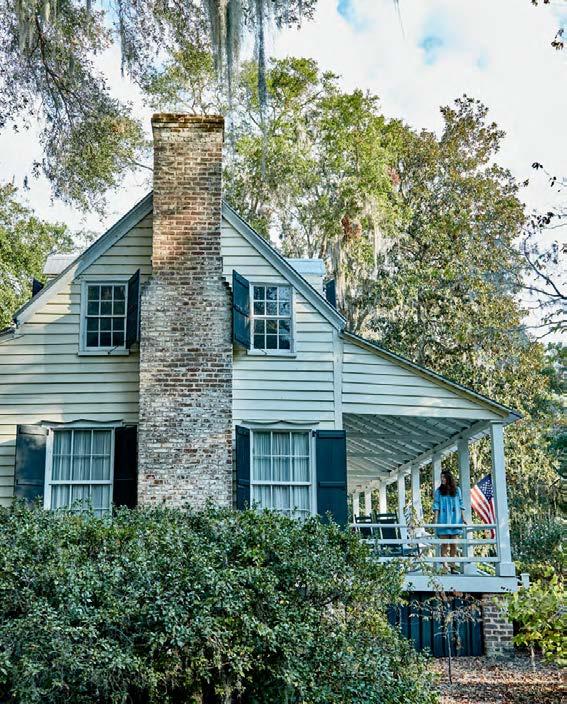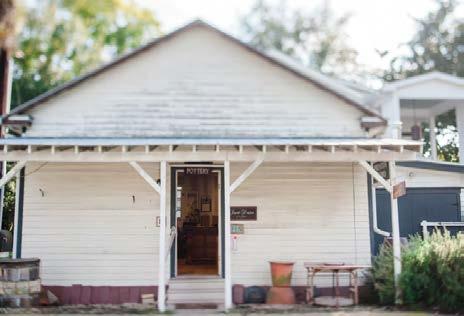
2 minute read
Gullah Culture
AN ENDURING PEOPLE
Preserving Gullah culture and chronicling a journey to freedom
Advertisement
By Linda Lanier
Sweetgrass basket creation

Fresh shrimp

Jacob Preston Pottery, a former praise house
WAY OF LIFEThe Heyward House, built by enslaved people in 1841, now serves as the Bluffton museum and welcome center.
For more than 300 years, the Gullah, descendants of slaves, have lived in the Lowcountry of South Carolina. Brought against their will from West and Central Africa, they endured hardship and heartbreak. After emancipation, they established new communities on the sea islands of Hilton Head Island, Daufuskie Island, and Saint Helena, along with Bluffton and other small towns on the nearby mainland. Today these families and their ancient culture remain a vibrant thread in the fabric of Bluffton life.
After the Civil War and well into the 20th century, the Gullah community continued to live on islands with no bridges and little contact with the mainland. Fishing, oystering, and farming were the way of life. Much of the Lowcountry’s beloved food culture originated with the Gullah — rice perlo, okra gumbo, shrimp and gravy, all cooked with spices and time-honored African cooking methods.
The rich Gullah creole dialect, a distinctive mixture of English and African languages, is still spoken and written. One of the best-known Gullah expressions, “Kumbaya,” translated “come by here,” found its way into a famous folk song. And Gullah sweetgrass baskets, treasured for their beauty and artistry, are sewn by hand as they were in the 18th century.
Spiritual life remains at the heart of Gullah culture. Small historic praise houses are tucked under majestic oak trees along sandy lanes in the Lowcountry, and the New Testament has been translated into Gullah.
The descendants of formerly enslaved people in South Carolina and North Carolina refer to themselves as Gullah, while the descendants in Georgia and north Florida refer to themselves as Geechee. The Gullah Geechee Cultural Heritage Corridor, which was established by Congress in 2006 to recognize this special history and way of life, is a 12,000-squaremile stretch of places that play a prominent role in the centuries-old Gullah Geechee culture.
On nearby Hilton Head Island, Historic Mitchelville Freedom Park on the banks of Port Royal Sound marks the site of the first self-governed town of formerly enslaved people in the United States. It is known as “the place where freedom began.” Established in 1862 by General Ormsby Mitchel, a Union commander of the forces that occupied the island, Mitchelville was the home of formerly enslaved people who gained their freedom prior to the Emancipation Proclamation in the Port Royal Experiment.
Several educational experiences encourage learning more about Gullah culture. Historic Bluffton walking tours, leaving from the Heyward House Museum & Welcome Center, speak to the local Gullah influence.











